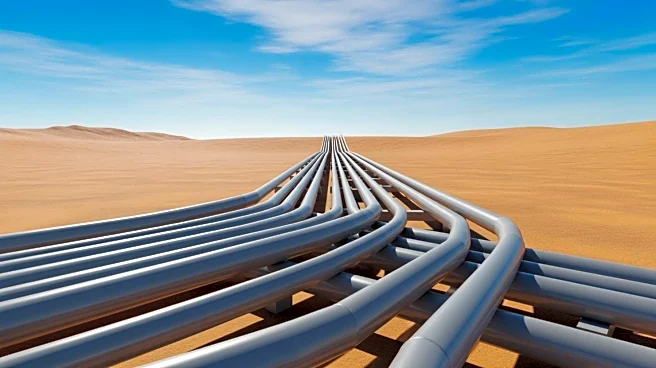What's Happening?
Pakistan is reevaluating its gas import strategy due to a projected decline in demand and an anticipated surplus of liquefied natural gas (LNG) beyond 2031. A report by Wood Mackenzie forecasts a 3% decrease
in national gas demand between 2025 and 2040, despite an increase in total supply from existing LNG contracts. The study suggests slowing progress on pipeline imports and revising LNG supply schedules to avoid financial strain. The report also highlights the need for structural reforms in the energy sector to address inefficiencies and promote sustainable growth.
Why It's Important?
The reassessment of Pakistan's gas import strategy is crucial for avoiding financial strain and ensuring energy security. With imported gas costs significantly higher than local production, the country faces challenges in balancing supply and demand. The anticipated LNG surplus and declining demand could discourage exploration activities and impact the energy sector's growth. Addressing these issues through reforms and strategic planning is essential for Pakistan's economic stability and energy sustainability.
What's Next?
Pakistan is expected to implement structural reforms in the energy sector, including improved pricing and liberalization of the gas market. These measures aim to enhance investment conditions for exploration and production, ensuring a more sustainable energy future. The global LNG supply boom, led by the US and Qatar, may push prices down from 2026, offering potential benefits for Pakistan if it can secure favorable long-term contracts. The country's energy strategy will need to adapt to changing demand patterns and global market dynamics.










